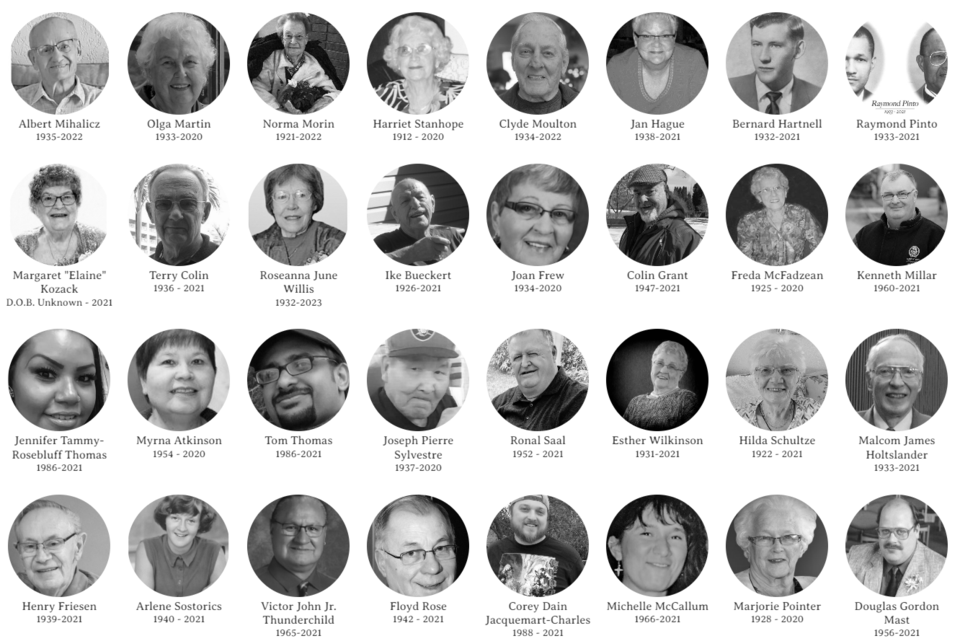A group of doctors, teachers, professors, researchers, and social workers has collaborated to create a public digital memorial for Saskatchewanians who died because of COVID-19, called Remember Lives, Not Numbers.
The digital memorial wall is part of a larger project supported by the University of Saskatchewan (USask) called Remember Rebuild, which seeks to document the pandemic and its effects as part of helping people in the province heal.
The wall is available to view at rememberrebuild.ca/remember-lives-not-numbers. A form at the bottom of the page allows viewers to easily submit additional names.
In a USask press release accompanying the launch of Remember Lives, Not Numbers, Dr. Jim Clifford noted that human beings are not very good at staying connected as numbers become larger. In psychology, this phenomenon is known as statistical numbing.
“I remember some of the powerful stories reported in the news during the early months of the pandemic that helped connect the death count with lives lost,” said Clifford, a Remember Rebuild team member and associate professor of history at USask.
“We collectively mourned Alice Grove and Fred Sasakamoose. But as the numbers grew, we probably needed to avoid thinking of the scale of the loss to avoid being overwhelmed.”
While the daily reporting of COVID-19 deaths ended on Feb. 6, 2022, the tragedies continued with more than 800 deaths occurring since then, Clifford said. COVID-19 has caused at least 1,800 deaths in Saskatchewan, and possibly far more.
“We’ve been working with a number of students and researchers to comb through obituaries,” said Dr. Erika Dyck, a team member, author, historian, professor, and Canada Research Chair in the History of Health & Social Justice at USask.
“All of this is in the public domain, so families had already produced this material, and we put it together in this format.”
The project team of Clifford, Dr. Patrick Chassé (PhD), Dr. Erika Dyck (PhD), graduate student Bethany Knowles, and undergraduate research assistant Domenica Medina Sanchez found more than 80 individuals whose families listed COVID-19 as the cause of death.
However, Dyck said that what the project really needs is community input from the entire province, because publicly available obituaries don’t tell the whole story.
“What we’re finding in the public obituaries is that certain people or families have put forward obituaries, but it’s not capturing the diversity of COVID deaths, particularly in the younger generations.
“We’re really hoping that more people will write in and help get a wider sense of the lives that were lost, help us fill in this picture.”
Dyck pointed out that the normal processes of grieving were interrupted by the pandemic. She said she is one of many Saskatchewan residents who lost friends and could not attend a service or gathering to honour their passing. She hopes the website helps Saskatchewanians to grieve collectively.
“We really do intend for this to be province-wide,” she added. “And we’ve already had inquiries from a number of family members across the province who would like to add to it.
“That’s precisely what this is designed to do, is to start the process and open this up and invite others to include family members and loved ones in this public memorial.”




